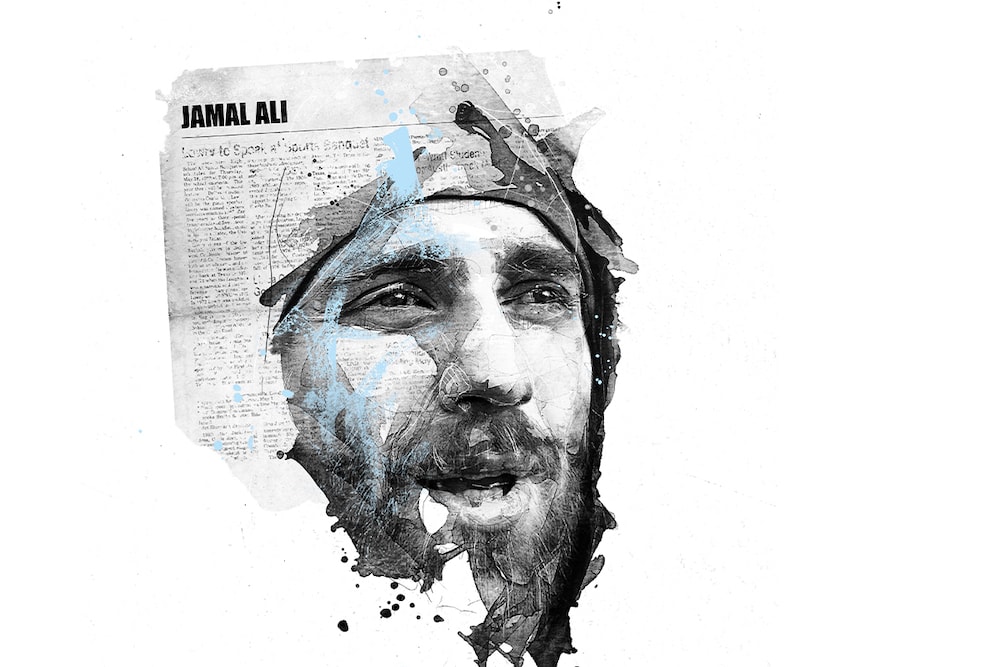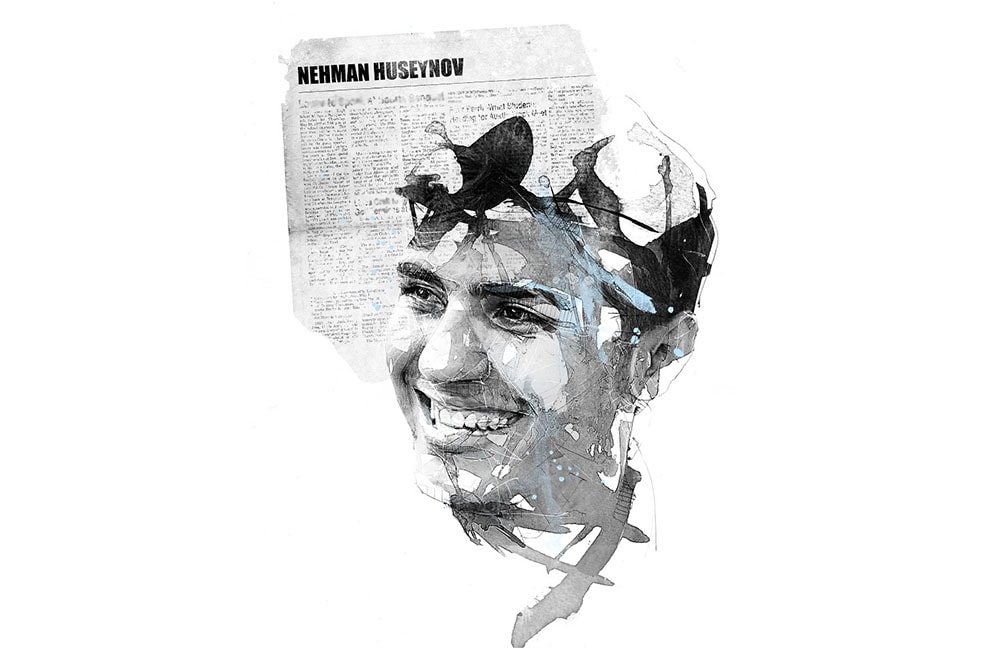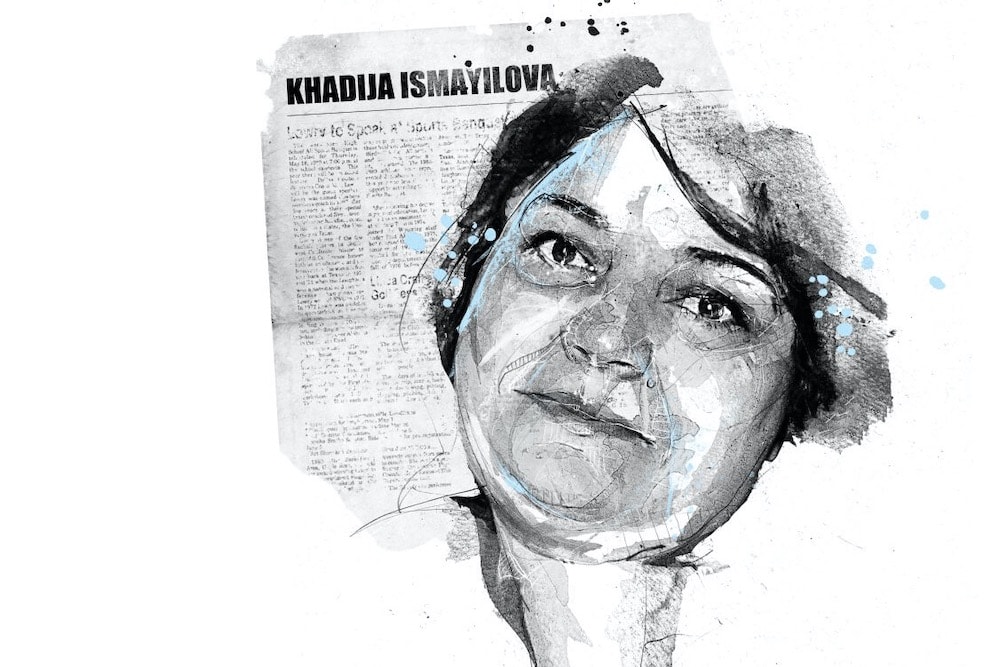A 2018 Index on Censorship 2018 Freedom of Expression Award nominee, Jamal Ali has been jailed, tortured and forced into exile, and his family has been threatened - but the rapper and activist continues to challenge Azerbaijan's corrupt regime through his music.
"Our president said: 'Nobody knew about Azerbaijan before Eurovision, and now we are all famous in the world… But famous for what?"
Jamal Ali is an Azerbaijani rapper, rock musician, journalist and activist. His criticism of President Ilham Aliyev’s corrupt regime has seen him detained, beaten, forced into exile, but not defeated.
Ali came to global attention in March 2012, when he was arrested at an opposition demonstration in Baku. The demonstrators were protesting Azerbaijan’s atrocious human rights record and the exorbitant sums being spent in preparations for that year’s Eurovision Song Contest, which Azerbaijan would host. The protesters were closely monitored; Eurovision was very important to the president, who saw it as a unique propaganda opportunity for his regime.
Ali was due to give a speech, and since there were state security agents present, he cheekily warned them about the coarse language that he was about to use. Little did he realise the consequences – both immediate and long term – this would have. He told the BBC:
“So I said, ‘Here you go, you’re going to hear some swearing,’ and I swore twice while addressing the President. The next thing I remember was four guys taking me [by the arms and legs]… they beat me while they were taking me to the car… and then on to the police station, more beating, and then on to the court, more beating, and then the decision was made: ten days for me, six for another guitarist and five for a guy who’d been trying to help us by pulling us out from the [police] car.”
For swearing, Ali was jailed on ‘hooliganism’ charges. During his detention, a bag was placed over his head every day and he was beaten with batons. “They were beating me on my bare feet, on my heels,” he told the BBC, “and they said to me, ‘Ok, if you don’t leave the country before Eurovision, if you carry on with your activities, you’ll be back here again in this room and it won’t be so easy the next time.”
Ali knew that these were not idle threats. He decided to leave for Germany.
Just before he left, however, he gave the Aliyev regime a musical poke in the eye. On the eve of the Eurovision Song Contest, he uploaded to Youtube his new song, Vermişel (Vermicelli); the video featured Ali walking through demolished ruins in Baku as his band performed with bags over their heads – a clear allusion to the torture that Ali had suffered in jail.
In Germany, Ali joined Meydan TV, an independent media organisation run by Azerbaijani exiles. He continued to be a thorn in Aliyev’s side – both through his media work and by releasing songs critical of Aliyev’s regime. This, though, had repercussions.
On 19 April 2017, Ali was detained at Tbilisi Airport, Georgia, denied entry to the country, and put on a flight back to Berlin. The border guards offered no explanation, but Ali suspected that he knew the reason behind his denial of entry, and that it had to do with Georgia’s cosy relationship with Azerbaijan (on which it depends for its gas supply). A few months earlier, in January, Ali had been in Georgia to investigate the State Oil Company of Azerbaijan (SOCAR) and its reportedly free-of-charge gas supply to Georgian churches. As part of this investigation, Ali had innocuously entered a church to ask about the source of its gas. But when the video of the report was posted online, protests were held in Tbilisi against Meydan TV; Ali specifically was singled out on placards as having been ‘disrespectful’ to the church.
In Ali’s absence, his family – like many of the families of exiled Azerbaijani activists – found itself targeted by the Aliyev regime.
In January 2017, Ali’s mother, uncle and two cousins were detained and questioned by Baku State police in connection with one of Ali’s songs, Heykal Baba (Grandfather Monument). The song, which Ali described to Caucasian Knot as a protest against the “autocratic regime’s violations of the freedom of speech and self expression of young activists,” was dedicated to two young men who were sentenced to ten years in prison after they had painted graffiti on a monument of the former president (the current president’s father), Heydar Aliyev.
Heykal Baba was popular and quickly reached 100,000 views on YouTube, so, at first, Ali was defiant despite the regime’s persecution of his loved ones. However, as the extent of the pressure became clear (the singer has said that he received threats that approximately 40 family members could lose their jobs or be jailed), he reluctantly removed the song from YouTube (although it’s now back up). “It’s hard,” Ali said of the experience in a 2017 interview: “I write a song and my brother might go to jail. It’s not me taking responsibility for that; the consequences are for the people who are close to me: they are getting punished for it.”
From exile in Berlin, Ali continued to call out President Aliyev’s corruption and the human rights abuses over which he presides. He spoke out about the regime’s kidnapping of the Azerbaijani journalist Afgan Mukhtarli from Georgia, and about Aliyev’s craving for international prestige. As he caustically commented in 2017: “Our president said: ‘Nobody knew about Azerbaijan before Eurovision, and now we are all famous in the world… But famous for what?”
In 2020, following the release of his song ‘Bismillah’, Ali found himself the target of several online death threats from religious extremists. ‘Bismillah’ – the lyrics of which are taken from the Koran – was interpreted by some Azerbaijani Muslims as mocking the Islamic faith, a charge denied by Ali, who pointed to the fact that the song is actually a re-working of a 2009 song by the Baku-based group Tengri. YouTube removed the video of the song without providing Ali with a reason, though it now available again.
Jamal Ali was nominated for the Index on Censorship Freedom of Expression Awards Fellowship 2018.
Illustration by Florian Nicolle


